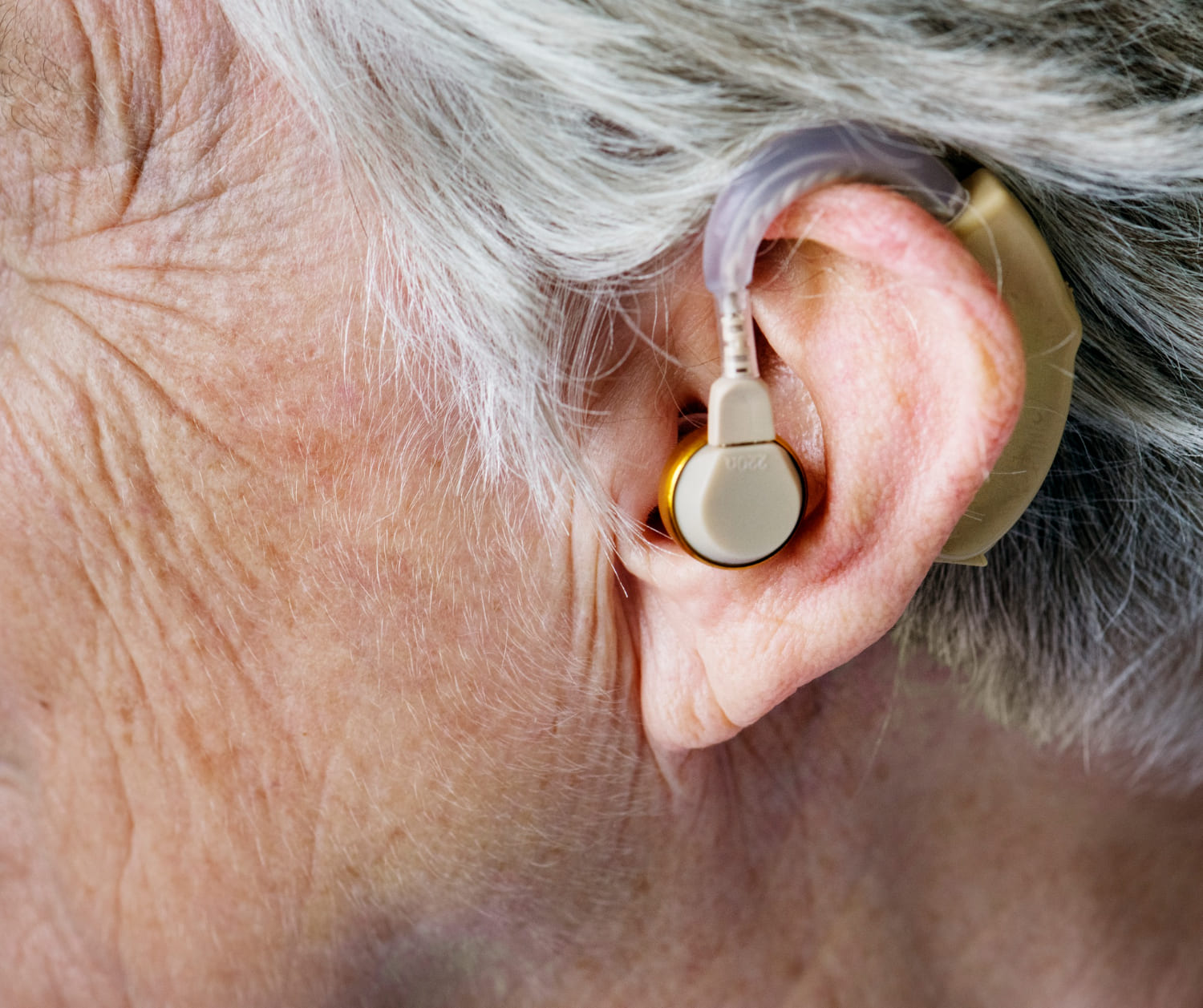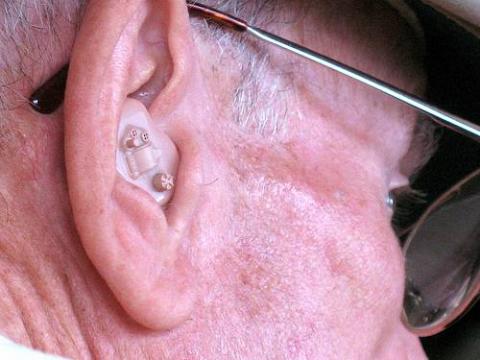Reactions to the study associating hearing loss with a higher risk of dementia
A Danish study involving over half a million individuals aged 50 and above, tracked for an average of nearly nine years, reveals that hearing loss is associated with a higher risk of dementia, particularly among those who do not use hearing aids. According to the authors, whose research is published in JAMA Otolaryngology–Head & Neck Surgery, this suggests that hearing aids may prevent or delay the onset and progression of dementia.

Rob Howard - audífonos
Robert Howard
Professor of Old Age Psychiatry, UCL Division of Psychiatry, UCL
There has long been interest in whether treating deafness with hearing aids can reduce the risk of developing dementia or at least delay the onset of dementia.
This is a large population register study, in which deafness was associated with a small (7%) increase in the risk of developing dementia and that this risk was slightly attenuated in people who used hearing aids. It is always important to remember that association does not equal causation and to think about the potential differences between older people with hearing impairment who acquire and persist with the use of hearing aids versus those who don’t. So far, no randomised clinical trial has shown that encouraging deaf people to use hearing aids significantly reduces the development of dementia. We should probably wait until we have the results of such trials before recommending this as a way to prevent dementia. However, for those who find them acceptable and useful, hearing aids bring many other positive benefits to the lives of people with hearing impairment.
Tom Denning - audífonos
Tom Dening
Professor of Dementia Research at the University of Nottingham
This is another interesting contribution to an important area of research. As hearing loss has been identified as a risk factor for the development of dementia, this has stimulated a lot of research into how hearing loss might cause dementia and also whether hearing interventions such as hearing aids might reduce this risk.
The paper by Cantuaria and colleagues examines a large sample of over half a million people from the Danish population who attended public hearing clinics. They compared people with and without hearing loss in terms of the rate of incident (new cases of) dementia over an average follow-up period of nearly 9 years. The main finding was that hearing loss was significantly associated with the later development of dementia, though the risk (hazard ratio) was lower than has been reported in some other influential studies. The risk was greater in people with more severe hearing loss. The authors also found that people with hearing loss who did not use hearing aids has a 20% higher risk of dementia than those with normal hearing. People who used hearing aids for their hearing loss did not have such a high risk (6%, which was only just significantly above the risk for normal hearing). This suggests that hearing aid use may help to protect against dementia. This finding is consistent with other studies.
The paper is strong because of the large sample size and the use of routinely gathered health data. Also, Denmark has the highest rate of hearing aid use among people with self-reported hearing loss, which makes it an interesting location for this study.
The main limitation is that this is an observational study, so there may well be differences between people who do and do not wear hearing aids, for example the actual cause of their hearing loss or other medical and social factors. Whether hearing aids help prevent dementia remains an open question. In some ways, the group who do not wear hearing aids are more interesting. Why don’t they do so, and is this related to the type of hearing loss that they experience?
"I have no commercial or financial interests to declare. However, I am a person with hearing loss and a hearing aid user, so this area of research is of deep personal interest. My current view is that there are plenty of reasons to advocate greater use of hearing aids besides hoping that they may reduce my risk of future dementia, which would definitely be a bonus, of course".
David Curtis - audífonos
David Curtis
Honorary Professor, UCL Genetics Institute, UCL.
This study repeats the frequently reported observation that having a hearing impairment is associated with subsequently receiving a formal diagnosis of dementia. This is consistent with the notion that hearing impairment may be an early feature of dementia or may share risk factors with some forms of dementia. It is not evidence that hearing impairment causes or exacerbates the progress of dementia. The fact that people who went on to be formally diagnosed with dementia were less likely to be using hearing aids would be readily explained by the fact that people in the early stages of dementia might derive less benefit from using hearing aids and would find their use more challenging. This study does not provide evidence that treating hearing loss with hearing aids would prevent dementia.
Manuella Lech Cantuaria et al.
- Research article
- Peer reviewed
- Observational study
- People



